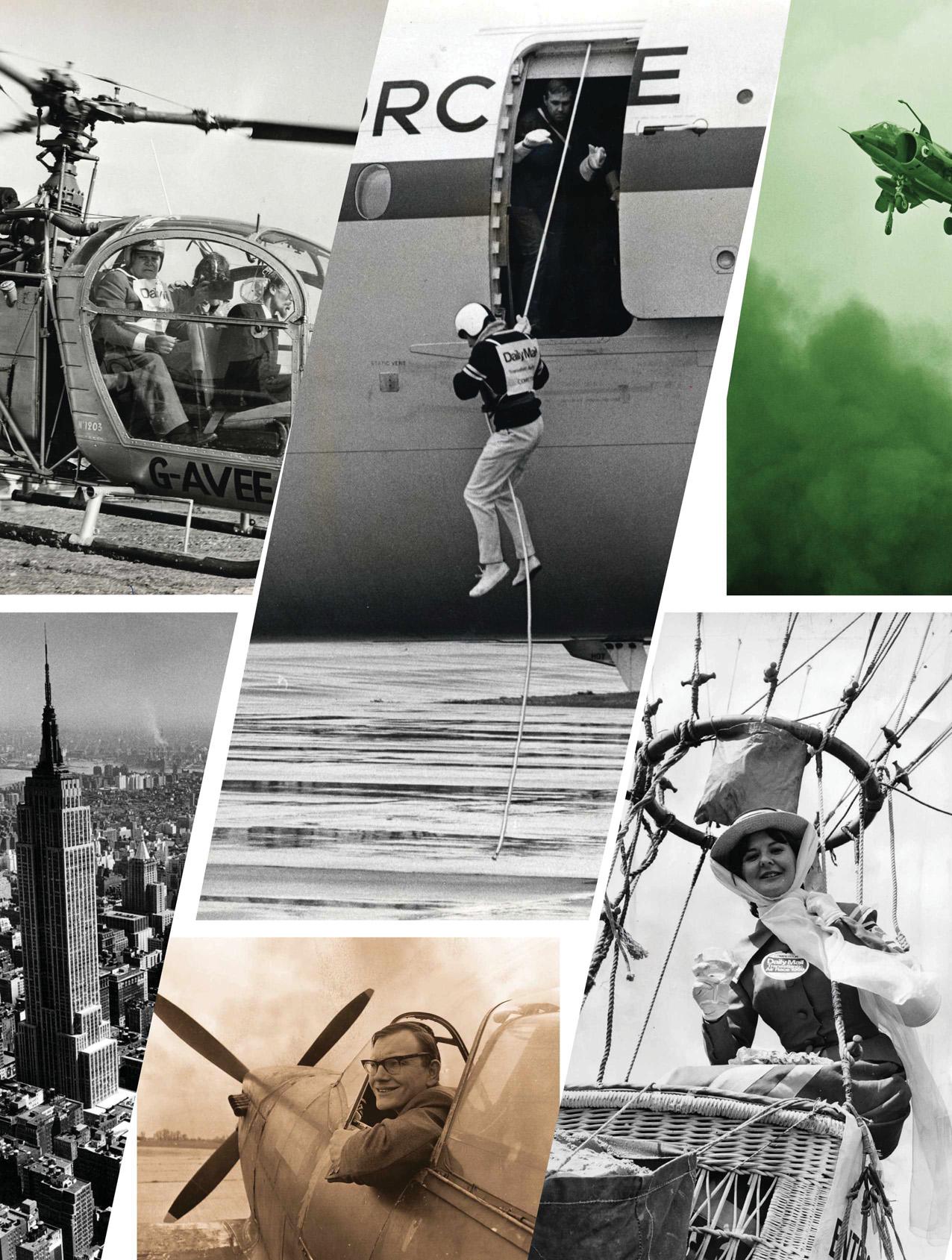
If you had been walking along the streets of eastern Manhattan on 5 May 1969, you would have been greeted by a curious sight. Hovering in the skies above the great metropolis like a giant steel kestrel was one of the most technically advanced military aircraft in history. Instead of rolling down a runway, the plane slowly descended vertically to the ground in a cloud of dust. Once it touched down, its canopy opened and a pilot hopped out and zoomed off towards the Empire State Building in a red motorcycle.
What on Earth was going on? And why was the pilot in such a hurry? The answer is that he was one of the frontrunners in an event called the Daily Mail Transatlantic Air Race, and he was just a matter of miles away from scooping a £6,000 prize for bagging first in class.
The giant steel kestrel – which was, in fact, a Hawker Siddeley Harrier, among the Royal Air Force’s most prized pieces of kit – was just one of the many weird and wonderful vehicles to convey competitors across the Atlantic in the seven-day competition. Tandems, sedan chairs, speedboats and hot-air balloons were all deployed in an attempt to cover the 3,400 miles that separated the start and end points as quickly as possible. With everyone from racing drivers and athletes to millionaire businessmen and high-ranking royals throwing their hats into the ring, it’s hardly surprising that this madcap, high-speed contest made headlines around the world.
Simple but deceptive
This story is from the Christmas 2023 edition of BBC History UK.
Start your 7-day Magzter GOLD free trial to access thousands of curated premium stories, and 8,500+ magazines and newspapers.
Already a subscriber ? Sign In
This story is from the Christmas 2023 edition of BBC History UK.
Start your 7-day Magzter GOLD free trial to access thousands of curated premium stories, and 8,500+ magazines and newspapers.
Already a subscriber? Sign In

The Aztecs at war
RHIANNON DAVIES discovers why war was so important to the Mesoamerican people - and why they believed a badly cooked meal could prevent a soldier from shooting straight

Towering achievement
NATHEN AMIN explores a 13th-century stronghold that was built to subdue independent-minded Welsh people, yet has since become a symbol of courage in the face of overwhelming odds

Eighteenth-century mushroom ketchup
ELEANOR BARNETT shares her instructions for making a flavourful sauce with roots in south-east Asia

Goodbye to the gilded age
JOHN JACOB WOOLF is won over by an exploration of the Edwardian era, which looks beyond the golden-era cliché to find a nation beset by a sense of unease

The power of the few
Subhadra Das's first book catches two particular waves in current publishing.
The 'badass' icon
One of the problems with biography, if an author is not careful, is that it can quickly become hagiography.

Ghosts of Germany's past
KATJA HOYER is impressed by a study of a nation's attempts to grapple with the crimes it perpetrated during the Second World War

A window onto England's soul
SARAH FOOT has high praise for a book that traces the evolution of English Christianity over the course of 1400 years, through the lives of its greatest thinkers

"There was a general perception that Queen Victoria's mourning was neither normal nor acceptable”
JUDITH FLANDERS talks to Rebecca Franks about her new book, which delves into the customs surrounding dying, death and mourning in Victorian Britain

"Indigenous children were forcibly separated from their families"
HIDDEN HISTORIES... KAVITA PURI on the legacy of Canada's residential schools